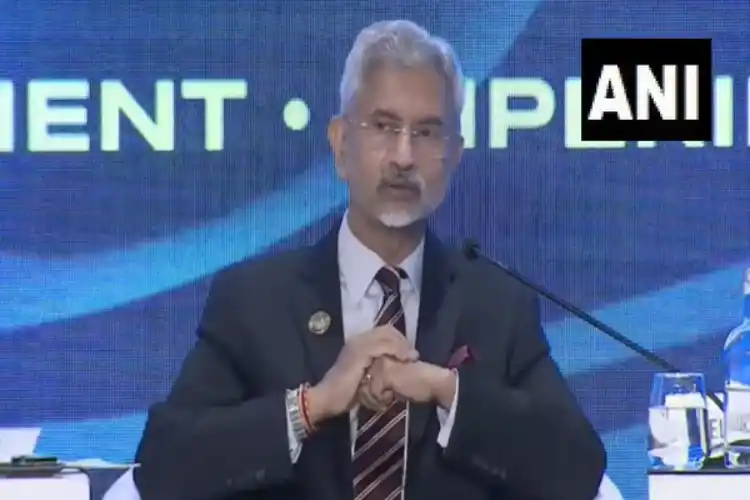
New Delhi
India should be practical about how it leverages the international environment and correct mistakes made in the past by paying more attention to hard security, External Affairs Minister S Jaishankar said on Wednesday while stressing the need for capacity building.
Speaking at a private conclave in the national capital, Jaishankar said, "When we are looking at India at 75, it's not just India at 75, we are also looking another 25 years ahead." "If I were to pick a single thing we have done, a difference that we have made to the world in the last 75 years, is a fact that we are a democracy," he said.
Jaishankar said there is a "gut sense" that democracy is the future, and a large part of this is due to the choices made by India in the past.
"There was a time when in this part of the world, we were the only democracy. If democracy is global today or we see it global today, in some measure, the credit is due to India," he said.
Speaking on where India has fallen short, Jaishanakar said India didn't pay the kind of attention to its social indicators and human resources in the past. "Two, we didn't concentrate as much on manufacturing and technology trends as we should have. Three, in terms of foreign policy, we didn't give as much weight to hard security," he said.
The external affairs minister stressed that India should focus on capability building in the next 25 years. "What we should be doing in the future one, in the next 25 years, is about capability, capability and capability -- in every possible domain and every possible way."
He said India should be "completely fixated on the outcomes" and be "utterly practical" about how it leverages the international environment.
"Second, we have to be confident about who we are. ...This idea that others define us and that we need to get the approval of other quarters --- I think that is an era we need to behind us."
Apart from Jaishankar, other panelists also spoke about how they viewed India in the 75th year of independence.
Jeff M. Smith, Research Fellow, South Asia at The Heritage Foundation, said it is remarkable that India has risen to the geopolitical hierarchy so quickly.
"It was the 10th largest military spender in the world in 2009, today it's the third. If China had not shadowed its rise, all we would be talking about is how quickly India had risen."
Smith said India hasn't become a destabilising factor in international relations but has become more responsible. "In fact, it's settling its dispute responsibly at international forums. It is being more magnanimous in its neighbourhood and treating its neighbours more kindly. It's defending the international order," he argued.
Answering a question on how India is perceived in the western quarters, Velina Tchakarova, Director of the Austrian Institute for European and Security Policy, said Europe's perception of India is shifting in positive terms.
"The watershed moment in India-EU ties is the realisation that we need to do more in bilateral and multilateral terms. This was the watershed moment in the understanding of how important India has become for the global order."
"Also, there is a realisation on the side of European decision-makers that.... both Europe and India don't want to get caught in a binary road given the deepening systemic competition between the US and China," she said.
Tchakarova also said that there may be a third way for Europe and India that would mean that both could build an own centre of trading power and would have an actual story to tell."
Former Canadian Prime Minister Stephen Harper, who was also on the panel, said India's definition in the world is increasingly shaped by the nature of India itself.
"India has had a remarkable economic transformation and growth for a large number of years. It is becoming a global player on the world stage."
On the security front, Harper said, "As China rises as a disruptive power, that seems to be pushing India towards a security alliance that was very different from the past."
